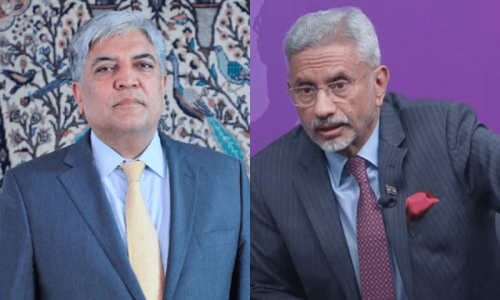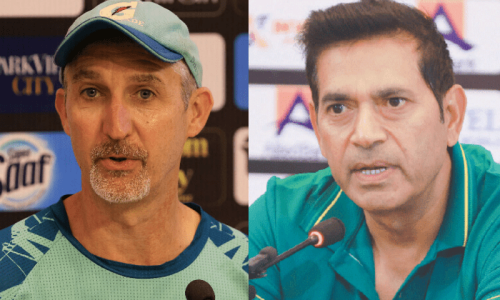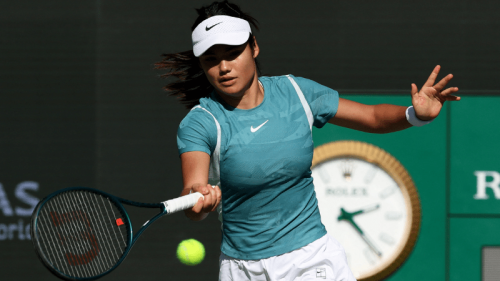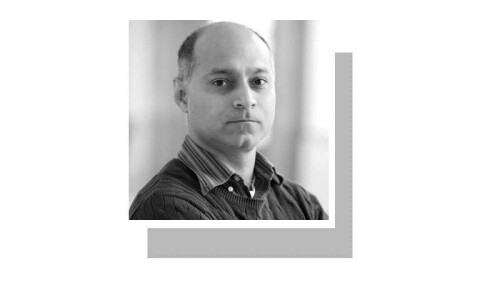As education, especially higher education, gets a smaller piece of the total spending pie, my thoughts go to two past events. One is what Mr. M.A. Jinnah wished, and, secondly, to the state of education in old Lahore before the British came in 1849.
First to Mr. Jinnah. His 11th of August, 1947, speech ended with a wish, and I quote verbatim: “Now that we are free we must spend one fifth of our national resources in educating the poor, otherwise each government will be more corrupt than the last, leading to the demise of the State”. It was a startling analysis of how the future would unfold if the population was illiterate. Seems our semi-literate ruling classes still care the least about such considerations.
Within 24 years the majority population broke away because they were, initially, denied use of their language, their resources were being plundered (East Pakistan’s export earnings were 71 per cent of total and only 24pc was spent on East Pakistan) and even though they had won a free and fair election, they were refused political power.
Because they were more educated than their West Pakistani compatriots they cut loose, bloody that it ended up being. Patriotism aside, it was the only solution left for them. Today their per capita income is higher than us. Bangladesh Nominal Per Capita is US$1,564 and Pakistan is US$1,467 (2017 figures). Mr. Jinnah was proved absolutely correct in his analysis.
But the tribal-feudal-religious-militarists configuration that is Pakistan today simply refuses to revert to what the Father of the Nation wanted. As Jinnah is no longer a priority person, except in name, let us go even further back and see what the school configuration was in the Sikh-era Lahore. For this we have an exceptional research book titled ‘History of Indigenous Education in the Punjab’, completed in 1880 by the great linguist scholar Dr G.W. Leitner, the person who founded Government College Lahore, Punjab University and the Oriental College, and who wished that Punjabi be the medium of instruction.
Sadly, the Urdu-literate officers and clerks of the invading East India Company working in Delhi, Madras and Bombay, all British, moved into a hostile Punjab after its capture and immediately considered the Punjabi language a threat. One officer said: “Once we kill off the mother-tongue of the Sikhs, they will truly be conquered”. During the research proceedings a Scottish officer, looking at the data, joked: “OK chaps, they are more literate than us. Let’s go back home”. The Scot was promptly sent home. But then the great Leitner was also made virtually redundant and returned to England, where to his immense credit he set up the Woking Islamic Research Centre. His contribution to Lahore is stellar, unrecognised as it remains.
But what does the statistical data he collected tell us about the schools inside Lahore’s walled city of Maharajah Ranjit Singh. He lists all the Maulvis, the Pandits, the Bhais, the Pandhas, the Hakeems and the Baids of Lahore, as well as the authors and poets of the city. But what is amazing about his research is the way he starts the preface. It says: “I have to appeal to the rulers to put yourself in the position of the ruled if you want to understand them …”. He tells us that there is a universal respect for learning and that the priest, no matter of which religion, is a professor and poet. The almost ritual narration of the epics and of Punjabi classics by poet-singers set them “a race apart”.
But what is worth researching and analysing was the role of the schools run by different faiths. Before one gets into detail what stands out is that the Hindu Pandits all ran schools which concentrated on Mathematics, Logic, Astrology, Sanskrit and Persian. They had the Chatsalas for traders and the Patshalas for religious training, medical education and also for astrology and astronomy. The Sikhs concentrated on Gurumukhi and the Granths. The Muslims taught Arabic, the Quran and Persian, with a few also teaching Urdu, which was a relatively new language for the people. This provides a graphic picture of the mindset of the different communal groups.
There are exceptions in that the Hakeems also ran small schools at home and taught Arabic, Persian and a few even Mathematics. Among the Pandits, especially those living in the Akbari Mandi area, were schools that taught the keeping of revenue records, mathematics and logic.
So it is clear that though the majority of children in the walled city of Lahore were literate, the Pandits were the ones who concentrated on logic and mathematics, as well as Sanskrit and Persian, for this was the language of the courts. This seems to follow the old saying of Socrates that “knowledge needs a logical mind able to communicate”, and for that mastery over the languages is critical. It seems that this very strategy was followed by the great Muslim scholars of Spain. Today mathematics and languages are the building blocks of all the great universities. The rest, as the saying goes, follow and are easy to master.
The question today is that do Pakistanis have a logical mind and do they have some degree of versatility in their mother tongues let alone in the national language or in the international language English we use? It seems Pakistani society, like the Hindu caste society, is divided along the lines of the languages used. The only positive is that everyone wants to graduate to the alleged higher caste. Experts tell us that without one of the three the others remain weak. We have situations in Pakistan where children are not allowed to speak their mother tongue, effectively cutting them from their past. Some schools insist that only English be spoken. It is a sign of implosion.
It is a bizarre mess because the role of logic seems missing as is the ability to communicate effectively. It is no wonder that book and newspaper reading is probably the lowest in the world. The other day as I read a piece by the renowned Pakistani journalist Khalid Ahmed about the role of logic and languages and how Partition robbed us of our best teachers, it made me consult a world authority on education at Cambridge University. I asked a simple question: “How would you structure primary education in a poor country like Pakistan?” He gave it a careful thought and said: “Till the age of 11 only two subjects should be taught: Mathematics and your mother tongue. That is all. Leave the children alone to follow their intuitive senses”.
He gave a pause and told me that the average child can learn five languages at the same time. He also said that with a logical mind and skill at communication, a child can take up any subject he likes later on. Einstein excelled in mathematics and his mother tongue and failed in all other subjects. It reminded me of a research, in which I was involved, carried out a long time ago which proved beyond doubt that Pakistan’s rural students had a much higher intuitive sense compared to urban students, who were good with languages, hence better able to communicate. But once rural students learned language skills they always did better. To understand this all one has to do is study the location from where our best bureaucrats, poets and writers come.
So what went wrong with Mr. Jinnah and his advice? Most scholars say that the answer lies in the Objectives Resolution that effectively put blinkers on our constitution and on our very way of life. But that is another story. For the time being we should worry about falling spending on education, about our unskilled population and the virtual collapse of higher education. Imagine, our best universities have ‘part-time’ vice chancellors. All I can do is repeat the tennis great John McEnroe saying: ‘Pits’.
Published in Dawn, September 30th, 2019

















































